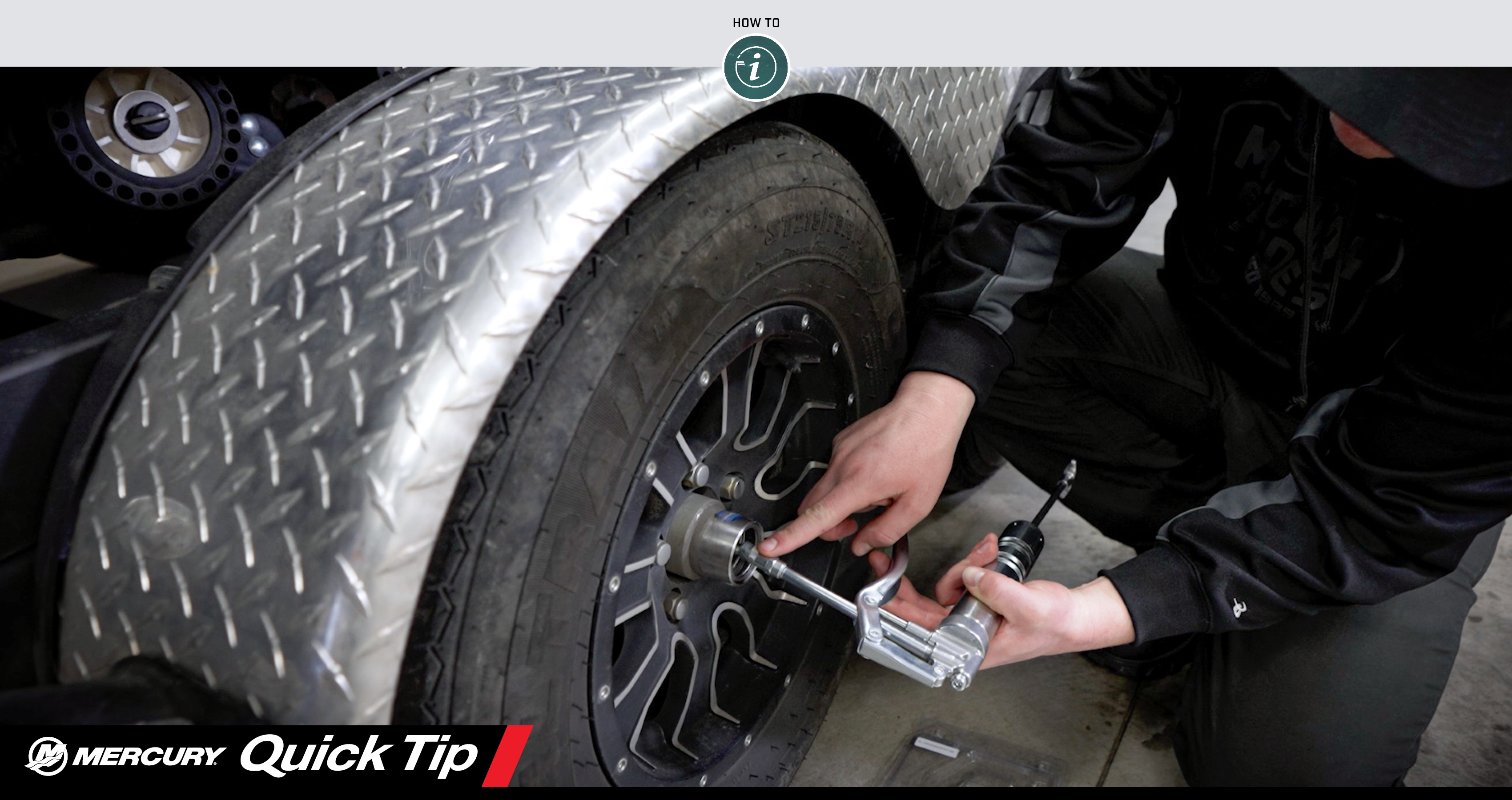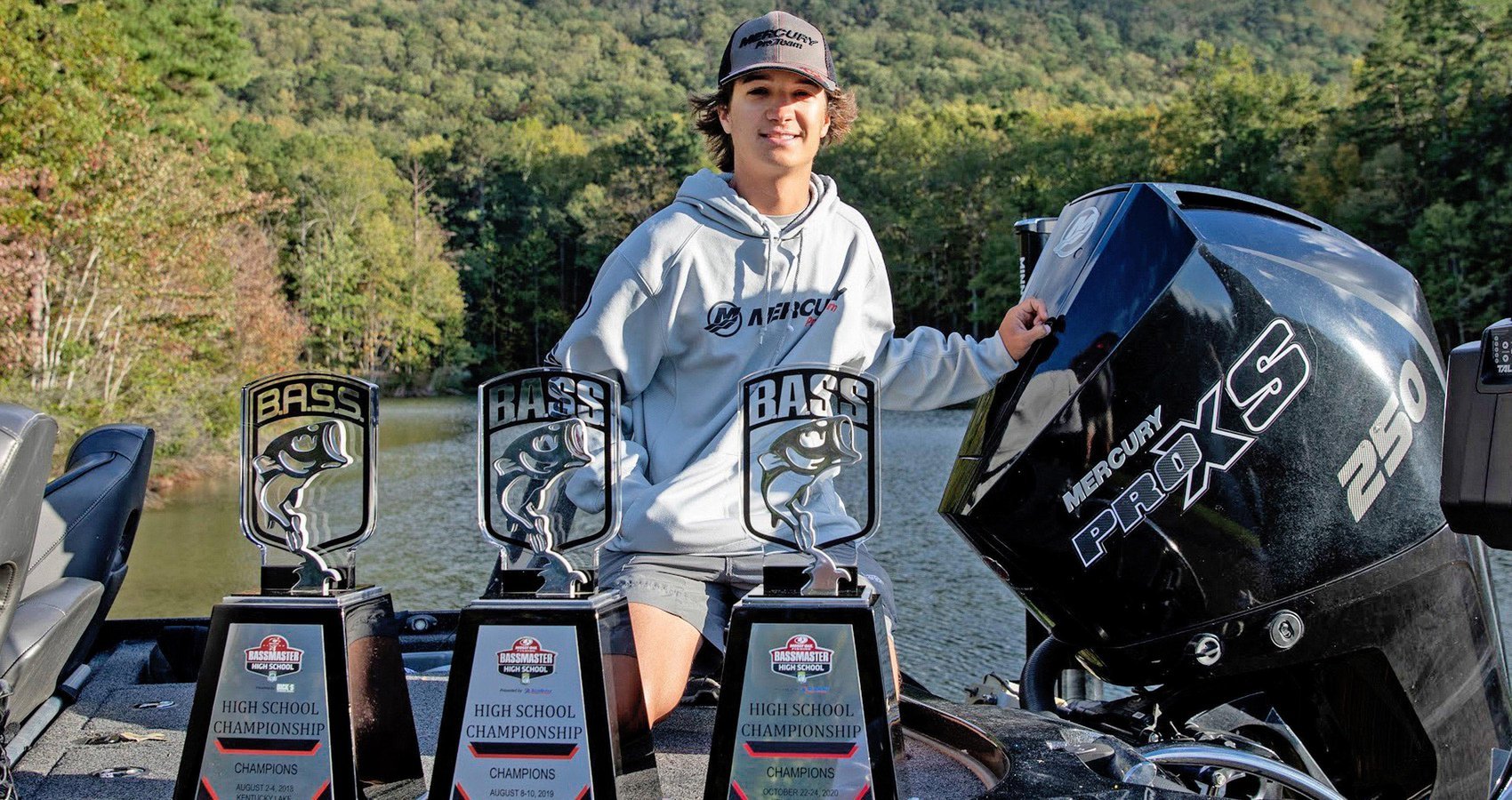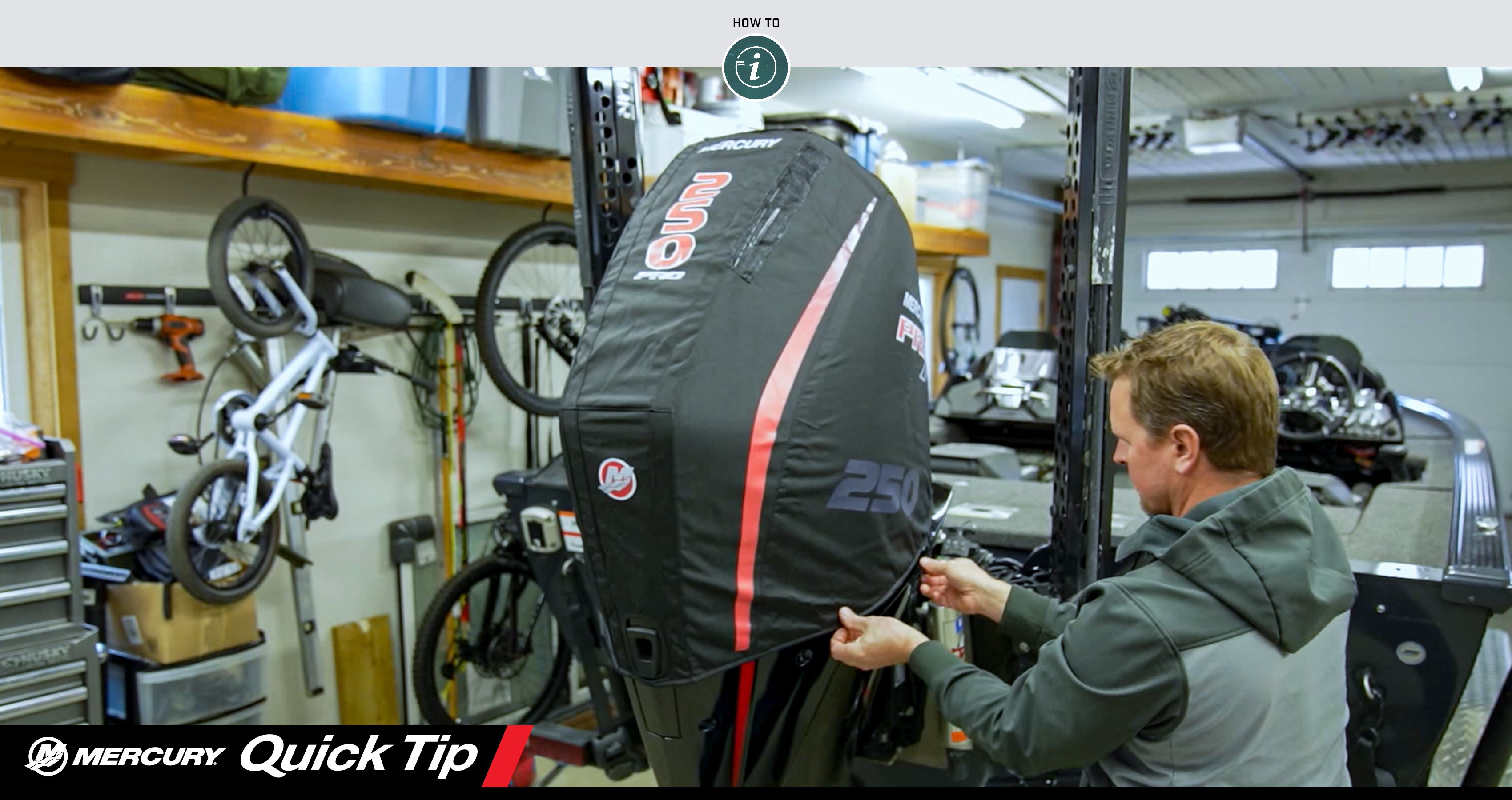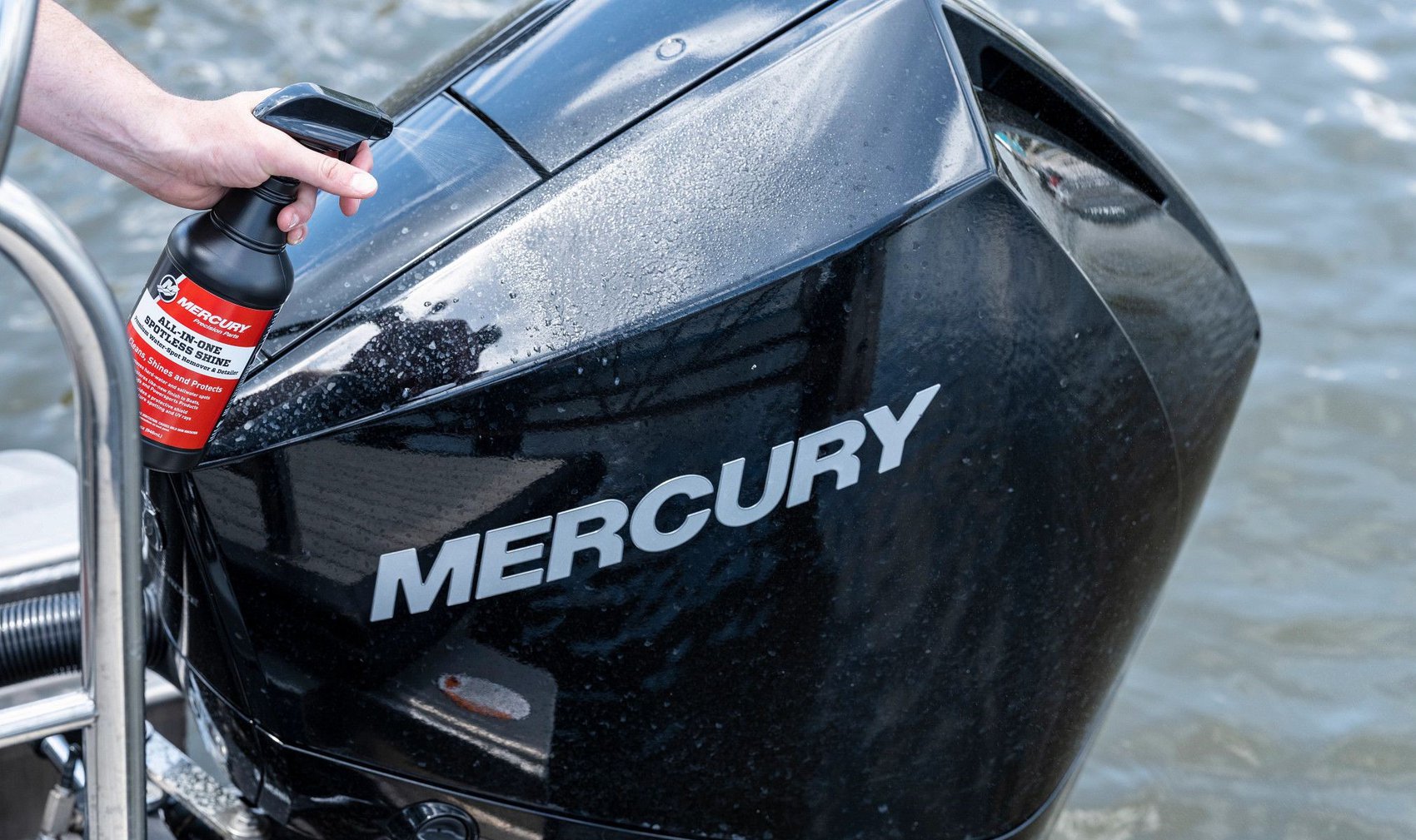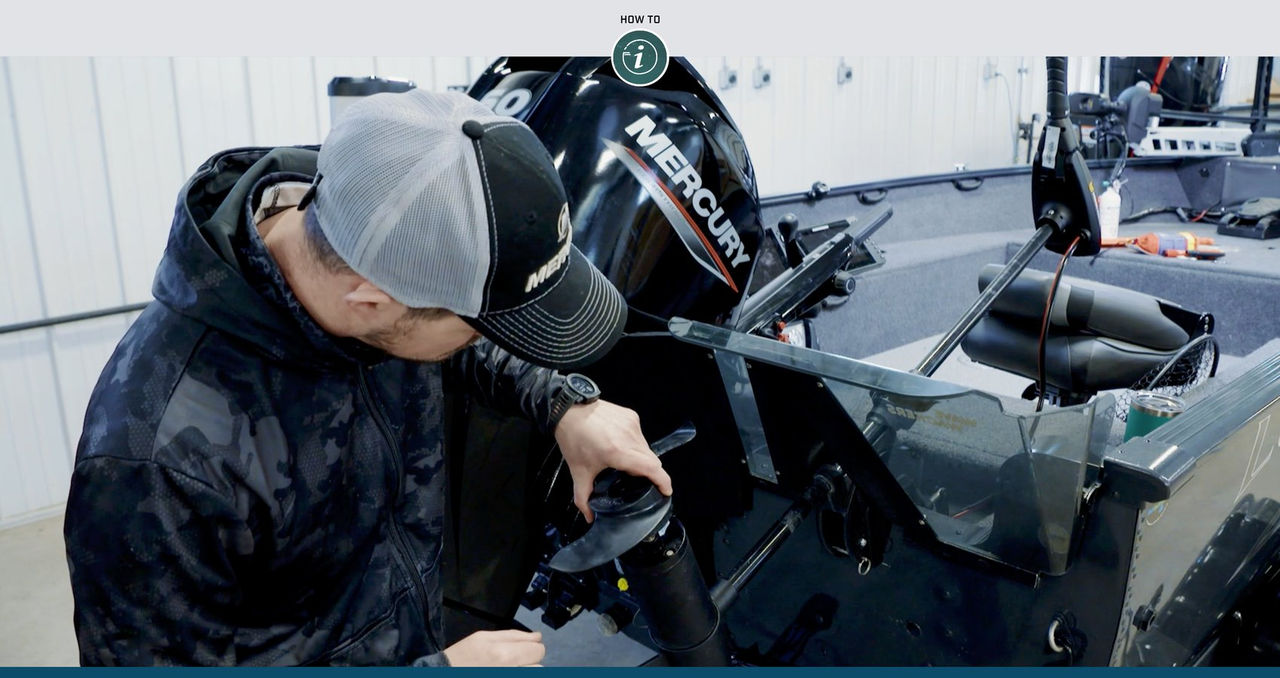inter gives way to spring and temperatures begin to rise, it’s time to get the boat out and ready for the season. If you live in an area with any sort of sustained winter weather, chances are your boat has been sitting for weeks or months. Which means you’ve got a little work to do in the form of spring commissioning. Though the process varies by boat size and type, spring commissioning should be fast and simple if you took the time to service, clean up and winterize your boat properly in the fall.
In the short video below, we demonstrate the process, which includes the following preseason checks:
- Tires – Check the air in your trailer tires with a pressure gauge. The recommended pressure will be printed on the sidewall of each tire. Also look for signs of cracking and excessive tread wear. If you see a problem, it might be time for new tires or a check by a professional. Don’t forget about the spare (and if you don’t have one, go get one).
- Trailer bearings – Ensure that your wheel bearings are in good condition and have plenty of grease.
- Batteries – Assuming you took your batteries out of the boat and kept them charged in a protected storage area over winter, you’ll need to reinstall the batteries. It’s good practice to label your cables before removing the batteries to ensure everything gets put back on the correct post later. If you see any corrosion on the cable ends or battery terminals, treat it with a wire brush and a little dielectric grease to keep it from getting any worse. If you haven’t charged your batteries all winter, you may need to charge them before use.
- Prop – Inspect your propeller for any major dings or damage. Now’s the time to get it to a prop shop for repair, or to get a new prop from your Mercury Authorized Dealer, should you need one. You should also remove the prop to check for fishing line and other debris around the prop shaft, then add some Mercury 2-4-C Marine Grease to the prop shaft (do not apply it to the shaft’s threads) before reinstalling the prop. If you’re not familiar with the process of removing and reinstalling a prop, click here to learn how. If you have a trolling motor, you should also remove that motor’s propeller to make sure it’s free of fishing line. Be careful not to lose the cross pin that goes through the trolling motor’s prop shaft. It can fall out when you remove the prop.
- Gear lube – Hopefully you remembered to change your gear lube as part of your winterization process. If you didn’t change it in the fall, go ahead and do it now. Check for milky grease or water in the gearcase. If you see any, it’s a sign of a failed seal, which should be addressed by a Mercury Authorized Dealer.
- Engine oil – For a four-stroke outboard, the engine oil should have been changed in the fall, but if not, do so now. If you did change the engine oil and filter at the end of last season, you’ll just need to check the fill level on the dipstick before heading out in spring. Be sure the engine is trimmed straight up and down to get an accurate reading.
- Miscellaneous engine maintenance – Under the outboard cowl you should see a label that details the maintenance intervals on things like your spark plugs and fuel filter. You can also find a comprehensive list in your engine’s operation, maintenance and installation manual. Check to see if any such items are getting close to needing changed based on your engine hours. It’s likely a lot more convenient to take care of any pending maintenance as part of your spring commissioning rather than in the middle of your boating season. If you own a sterndrive- or inboard-powered boat, consult your manual for similar maintenance information.
- Trim and steering fluid – Your trim fluid and hydraulic steering fluid reservoirs should have been topped off in the fall, but check them anyway to ensure they are still full. If any grease fittings were missed in your winterization, go ahead and give them a few pumps with a grease gun now.
- Fuel system – Fill your fuel tank all the way up and treat it with the appropriate Mercury Fuel Care System product to ensure your fuel stays fresh and your fuel system is clean and free of buildup for optimal performance and reliability. Adding Mercury Quickare® Fuel Treatment is recommended with every fill-up since it helps guard against the harmful effects of ethanol-blended fuel. It’s great for your tow vehicle as well.
- Safety gear and essentials – Take inventory of your safety gear and ensure that everything is in good working order. This equipment will include life jackets, a fire extinguisher, flares and other items required by the U.S. Coast Guard and/or your state and local regulations. You should also have some combination of a first-aid kit, paddle, VHF radio or satellite phone, flashlights, spare batteries, air horn, whistle, rope bag and the like. This is merely a sample list. For a complete list of required safety gear, check out your state’s department of natural resources website. Note: Flares and fire extinguishers may have expiration dates, so make sure yours aren’t past their useful lives.
- Trailer basics – Inspect the rest of your trailer to make sure nothing is amiss. Suggested areas of focus:
- Coupler, including the latch, locking pin and the bolts that attach it to the trailer tongue
- Safety chains
- Lights, including blinkers and brake light functionality
- Jack, which will need to be greased
- Lubricate the shafts and gears of the winch and inspect the strap for any signs of wear or rot
- Tiedown strap functionality and condition
If you have any reason to believe that any part of your boat or trailer is suspect, don’t hesitate to contact your local Mercury Authorized Dealer. Not only is this the safest course of action, it will be easier to get something fixed in a timely manner before the boating season begins in earnest.
